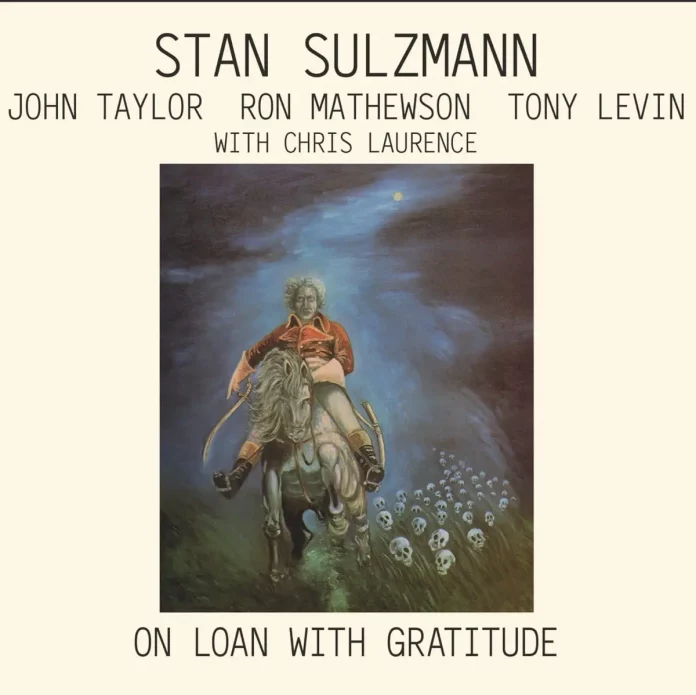Stan Sulzmann works by day as professor of saxophone in the jazz department of the Royal Academy Of Music. But to jazz fans he is revered as one of the great saxophonists to have emerged from the so-called “golden age of British jazz”.
Stan played on some very notable albums including Graham Collier’s rightly revered Down Another Road (Fontana, 1969), John Taylor’s Pause And Think Again (Turtle, 1971), John Warren and John Surman’s Tales Of The Alonquin (Deram, 1971) and Mike Gibbs’ Just Ahead (Polydor, 1972). He’s also been a member of the Kenny Clarke – Francy Boland Big Band and Kenny Wheeler’s quartet.
On Loan With Gratitude is the first reissue of his long-lost 1977 debut album. Its genesis dates back to his membership of the Collier sextet. Disillusioned with the indifference to jazz by the major record companies, Collier started his own record label, Mosaic, and offered Sulzmann the chance to record for it. Mosaic lasted from 1974 to 1979 but released barely a dozen albums.
In 1979 Sulzmann released a second album on Mosaic, a duo recording with pianist Tony Hymas entitled Krark. But it was his first album that established a future pathway for the saxophonist in that the personnel on the album would comprise Sulzmann’s regular group for nearly 10 years. In addition, Sulzmann reveals in his sleeve notes that John Taylor “was an enormous influence on me as pianist, composer and friend.”
The opener on CD1 finds Sulzmann playing stunning soprano with Taylor on electric piano. A standout is the elegant Anagram, Sulzmann and Taylor bouncing florid tunes underpinned by Ron Mathewson’s glissando bass lines. On the three-part title track, opening with an ostinato bass motif, Sulzmann alternates between sax and flute whilst Taylor is heard on acoustic piano. Sulzmann plays stentorian tenor on Good News, the first of the bonus tracks.
This double album is additionally valuable not merely for the reissue but also because it offers the chance to hear some rare broadcast tracks that might otherwise have gone unheard. The compositions are strong and show that Sulzmann was as good a composer as he is a saxophonist. With a flavour of the Caledonian, CD2 kicks off with the catchy Flying Scots. On the second part of The Wizard Calico / Jonesy, Sulzmann’s forceful yet mellifluous tenor shines through.
Sulzmann’s choice of rhythm section for these recordings was impeccable, drawing on the cream of British jazz at that time. Taylor was the go-to keyboardist of the era and remained a brilliant virtuoso throughout his career. Tony Levin was equally sought after and one of the finest drummers around.
It is no coincidence that Mathewson was recruited by Tubby Hayes and later Ronnie Scott. His inventive, visceral approach permeates all the tracks bar one where Chris Laurence is heard on the concert version of On Loan With Gratitude. Sadly, only Sulzmann and Laurence survive, but the three others live on through this and a panoply of equally fine recordings.
Discography
CD1: (1) G.R.S.; Anagram; On Loan With Gratitude (Parts 1, 2, 3); Good News; Adelphi; You Know What I Mean (62.19)
CD2: Flying Scots; When All Else Fails; G.R.S.; The Wizard Calico / Jonesy; (2) On Loan With Gratitude (Parts 1, 2, 3) (66.15)
(1) Sulzmann (ss, ts, f); John Taylor (kyb, p, syn); Ron Mathewson (b, elb); Tony Levin (d, pc). (2) Mathewson out, add Chris Laurence (b). CD1, tracks 1-3: London, 8 April 1977. CD1, tracks 4-6 and CD2: London, 1974 & 1975.
Jazz In Britain JIB-48-S-CD
















